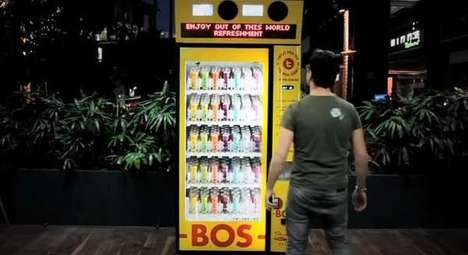3 Keys to Keep in Mind When Marketing to Gen Y
Marketing to Gen Y
Related Trend Reports
AI, Art & Design, Bizarre, Business, Fashion, Food, Hip Fashion, Interactive, Luxury, Marketing, Mobile, Retail, Social Media, Tech Millennials have proven to be a tricky demographic for brands to reach out to, but marketing to gen Y isn't impossible. Strongly distinct from other generations and presenting new challenges, the millennial generation can be targeted, but only in tactful ways. Here are some keys to keep in mind when approaching this group.
Millennials have proven to be a tricky demographic for brands to reach out to, but marketing to gen Y isn't impossible. Strongly distinct from other generations and presenting new challenges, the millennial generation can be targeted, but only in tactful ways. Here are some keys to keep in mind when approaching this group.Be genuine.
Millennials are a generation that, more than any other, places value on authenticity. More jaded than other generations before them, this group needs to be marketed to in a way that comes across as honest and self-aware. Don't oversell your service or goods to millennials, as it may erode your relationship to these kind of consumers.
Make your campaigns useful.
Since millennials tend to be skeptical and borderline avoidant when it comes to advertising, it helps to create a service or product around the act of engaging with a campaign. Sample marketing, an approach seen in campaigns like the BEV Twitter Vending machine, a machine that dispensed free iced teas in exchange for tweets, offer consumers incentive to participate.
Take advantage of tech.
Known for being exceptionally tech-savvy, it only makes sense that millennials respond more strongly to cutting-edge, technologically strong campaigns. This not only makes a campaign more interesting to a millennial, but gives them the opportunity to put their gadgets to use. Appvertising, an advertising approach that relies on creating useful, branded apps in order to reach a target, is very effective with millennials. Nike's Nike+ GPS App, for instance, helped users map their run by using GPS technology, providing a valuable service to a target audience.
Marketing to gen Y may be tricky, but it's not impossible. For more insights into the ways in which leading companies are reaching this demographic and beyond, check out Trend Hunter's Marketing Trend Report.
References: trendreports
Featured Articles

Sampling Hysteria
The power of the free trial remains unmatched

Social Appvertising
Brands use Facebook apps to futher interactive campaigns

Vending 3.0
Hi-tech features turn vending machines into interactive buying experiences

Domesticized Retail
At-home sampling and personalized services offer the ultimate in shopping ease

Appvertising
Apps increasingly used as a medium for selling products

Millennial Mockery
Generation Y consumers look to parody for self-expression & belonging